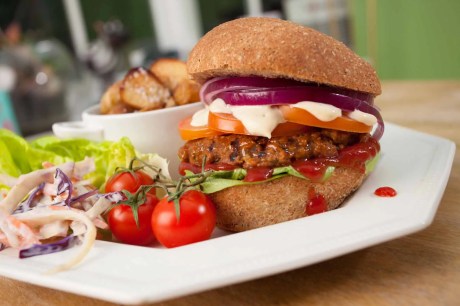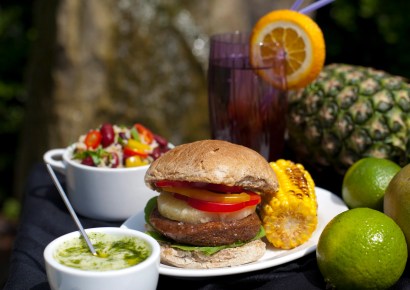Everyone loves animals. How can you not love Fluffy when he is begging for scratches or stealing your snacks? But even hard core animal lovers will sometimes make simple mistakes.

1. Supporting zoos and aquariums
It’s hard to resist going to the zoo to see those cute meerkats, or the aquarium to see those gorgeous penguins, but unfortunately, zoos and aquariums aren’t necessarily good for the animals. Many argue that zoos can act as a safe haven from poaching, and that the animals generally live a better life in the zoo than in the wild. For some specific zoos and sanctuaries, this may be true. But zoos are generally incentivised to keep exotic animals out of their natural habitat, which probably isn’t great for them. Zoos also generally reinforce the use of animals for human enjoyment.

If you want to support a zoo for the educational factor or to help endangered animals, I’d encourage you to look at animal sanctuaries and be careful about where you go.
2. Consuming animal products
You might not like it, but the unfortunate reality is, every time you reach for an animal product in the supermarket, an animal had to suffer for it. Going vegan is a super easy way to reduce the harm you cause animals, and it comes with a suite of side benefits like better health and reduced environmental impact. I wrote a full article on reasons to be vegan here which you should check out, but in short:
Most food animals live in horrendous conditions, with around 99% of meat being produced in factory farms, where animals have very little space to move around. Their deaths are not pain-free despite industry attempts, and other animal products like dairy and eggs are also associated with some awful practices that are standard in the food industry.

If you want tips on how to easily go vegan, I love this video by the Vegan Activist. Plus vegan food is just darn delicious!
3. Not using evidence
Many animal lovers put their wallet where their mouth is and support animal charities, which is great! Unfortunately (or maybe fortunately), not all charities as equally as good. Some charities do hundreds or even thousands of times more good than others, and some charities even have a negative impact. Effective altruism is a new movement which seeks to find the most effective causes and charities to support, and the most effective activities to undertake.
Animal suffering can arise due to a lot of reasons, but one seems to dwarf the rest. The below figure from Animal Charity Evaluators shows the number of animals used and killed in different industries. The number of animals used in factory farming far outweighs the number of animals used in labs and clothing (e.g. fur/leather) and who require shelters. Unfortunately, this disparity is not reflected in the amount of money donated to different animal charities, with most going to shelters despite the low number of animals involved, and practically none going to benefitting food animals.

Because of this neglect of food animals, it is reasonable to believe that working to help food animals will be more effective than helping shelter animals, and this is matched by the evidence. While there is still some uncertainty and debate around the figures, Animal Charity Evaluators estimates that The Humane League could “spare 100,000 to 1.7 million animals from a life in industrial agriculture” for $1,000. That kind of impact is hard to get by donating to an animal shelter.
Jacy Reese is one person who has taken the message of effective altruism to heart, and is working as a researcher for Animal Charity Evaluators to compare the effectiveness of different ways of reducing animal suffering.
Matt Wage has taken a high paying job, partly so that he can earn more and donate it to highly effective charities. Counterintuitively, taking a high paying job to donate to top animal charities could have more of a positive impact than doing animal advocacy directly. This has inspired me to take my own pledge to give to effective charities for the rest of my life, and I’d encourage you to do the same.
If this is your first introduction to effective altruism, definitely check out this more detailed one.
4. Getting angry instead of effective
It can be tempting to lash out at someone or use aggressive language when communicating animal rights or veganism. I myself have sometimes found myself casually saying that eating meat is like murder, or comparing factory farming to atrocities involving humans.

Here’s the thing – even if these comparisons are true, they are not likely to create change in the person hearing it. Anecdotally, I have not created any behaviour change by indirectly calling someone a murderer, but I have encouraged people to eat less meat or go vegan by calmly sharing information. It’s difficult, because you may well believe these things, and I am certainly sympathetic to that. But just because something is true doesn’t mean you should say it. The focus should always be on helping animals as effectively as possible. The last thing you want them to do is get defensive and reinforce their own excuses for consuming animal products.
5. Always dismissing the ‘weird’ stuff
The wild is often seen as an idyllic and peaceful place. Unfortunately, this is not always the case. Many wild animals die young, often painfully, and even those that don’t can live exposed to the elements and suffer injury or disease. Related to this is the idea that insects may be sentient and capable of experiencing pain. If these are true, then there are a lot of wild animals and insects that might be living painful lives.

There doesn’t seem to be a lot we can do about these issues yet (though Brian Tomasik discusses some possibilities here), but if we care about animals and want them to suffer less, we should at least be open to this possibility and think about the implications. Sentience Politics explores this uncertain and difficult topic here, and a more academic review is available here.
I will add the cautionary note that not all ‘weird’ stuff is necessarily right or valid! I just want to stress that you shouldn’t always dismiss something just because you haven’t heard it before.
6. Being close minded and not being humble
We’re human. We make mistakes. That’s fine, as long as we’re willing to admit that. If another animal lover presents you with some information that you disagree with, you should always pause and ask yourself if it’s possible that you yourself are wrong. For example, remember that you used to think there was no good reason to go vegan until you did. If you’re debating with someone who raises a point you hadn’t thought of before, don’t rush to piece something together if you’re not sure. It’s better to say, “I hadn’t thought of that before, I’ll have to look it up.” Or just say that you’re not sure about something. If you get caught lying or being overconfident, your whole argument could lose credibility.
Enjoyed this? Found it useful? Share it with some friends and subscribe.
If you have done any of these or have any more tips to share, write a comment to let everyone know.











